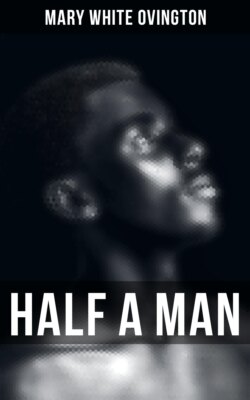Читать книгу Half a Man - Mary White Ovington - Страница 3
На сайте Литреса книга снята с продажи.
ОглавлениеFOREWORD
Table of Contents
Miss Ovington's description of the status of the Negro in New York City is based on a most painstaking inquiry into his social and economic conditions, and brings out in the most forceful way the difficulties under which the race is laboring, even in the large cosmopolitan population of New York. It is a refutation of the claims that the Negro has equal opportunity with the whites, and that his failure to advance more rapidly than he has, is due to innate inability.
Many students of anthropology recognize that no proof can be given of any material inferiority of the Negro race; that without doubt the bulk of the individuals composing the race are equal in mental aptitude to the bulk of our own people; that, although their hereditary aptitudes may lie in slightly different directions, it is very improbable that the majority of individuals composing the white race should possess greater ability than the Negro race.
The anthropological argument is invariably met by the objection that the achievements of the two races are unequal, while their opportunities are the same. Every demonstration of the inequality of opportunity will therefore help to dissipate prejudices that prevent the best possible development of a large number of our citizens.
The Negro of our times carries even more heavily the burden of his racial descent than did the Jew of an earlier period; and the intellectual and moral qualities required to insure success to the Negro are infinitely greater than those demanded from the white, and will be the greater, the stricter the segregation of the Negro community.
The strong development of racial consciousness, which has been increasing during the last century and is just beginning to show the first signs of waning, is the gravest obstacle to the progress of the Negro race, as it is an obstacle to the progress of all strongly individualized social groups. The simple presentation of observations, like those given by Miss Ovington, may help us to overcome more quickly that self-centred attitude which can see progress only in the domination of a single type.
This investigation was carried on by Miss Ovington under the auspices of the Greenwich House Committee on Social Investigations, of which she was a Fellow.1
Franz Boas.
FOOTNOTES:
1. The Greenwich House Committee on Social Investigations is composed of Edwin R. A. Seligman, Chairman, Franz Boas, Edward T. Devine, Livingston Farrand, Franklin H. Giddings, Henry R. Seager, Vladimir G. Simkhovitch, Secretary.
Miss Ovington's is the second publication of the Committee, the first being Mrs. Louise Bolard More's "Wage-Earners' Budgets," published by Henry Holt & Co.
